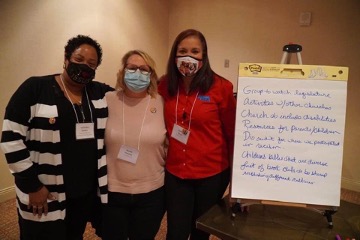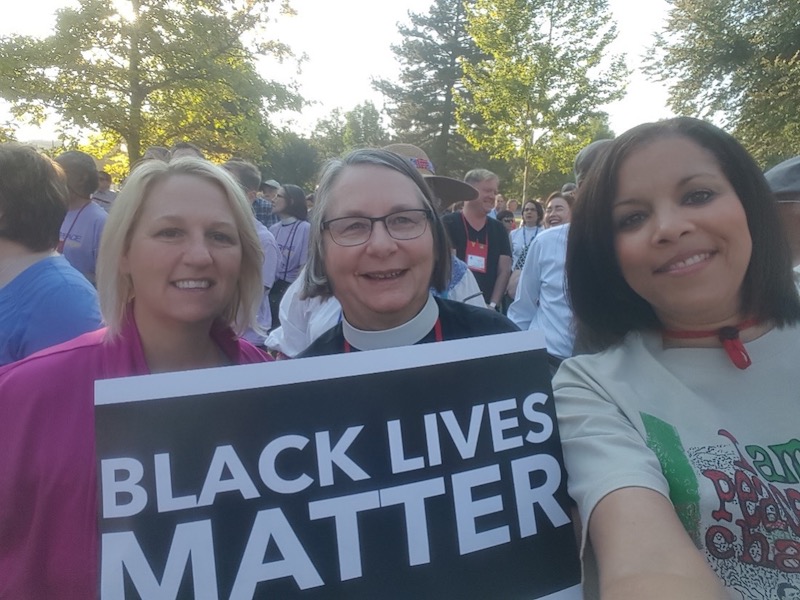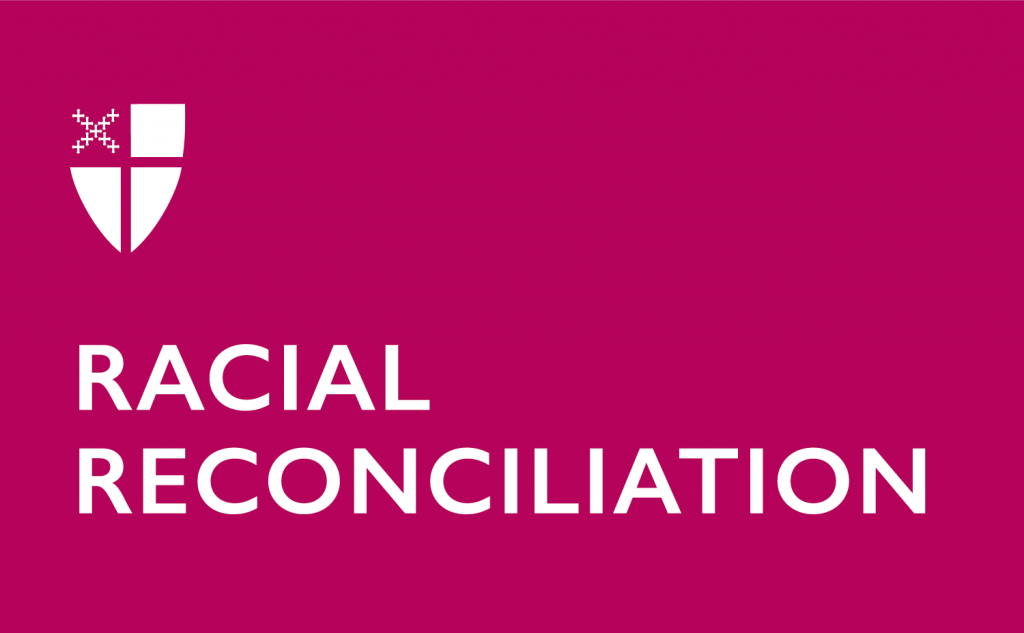Nebraska Proves Fertile Soil for Sacred Ground
By Noelle Ptomey and Lesley Dean

Known by some as a flyover state, Nebraska is worth a look to see how to imbed Sacred Ground in a conservative-leaning culture.
Located in the middle of the country, we are a small, predominantly rural diocese made up of 51 congregations spread out over 77,000 square miles, with approximately 2,000 members. Fifty percent of our parishes have an average Sunday attendance of 25 or less; and in many cases, much less.
Politically we are considered a conservative or “red state,” and though we sit on the traditional lands of the Ponca, Omaha, Pawnee, Oto-Missouri, Lakota, Cheyenne, Arapaho, Winnebago, Santee, and Sac and Fox people, we are not known for racial diversity, with the 2020 census listing 61% of Nebraskans as White.
Our visitor bureau slogan exposes us in stark and exclusionary terms: “Nebraska, It’s Not for Everyone.”
In 2020, when our parishes shuttered amid the raging pandemic, we grieved the loss of community and connection as the world came to what felt like a standstill. Then we witnessed the murder of George Floyd. Even in the heartland, his death struck a chord and became a catalyst for change.
That fall, our women’s ministry sponsored a webinar titled, “My Body is a Confederate Monument,” based on the viral article by Caroline Randall Williams. The panel featured two Black women who are Nebraska Episcopalians. Together they told the stories of their—at times violent—genealogy. During one of the first diocesan events we did on a large scale over Zoom, we learned our membership wanted more conversations about race, and that technology could be a vehicle for community.
A few months later, we were invited by our bishop, J. Scott Barker, to head up a “racial justice ministry” in the diocese. The invitation was as earnest as it was vague; he said we needed to do something. Being the good bishop that he is, he did point us in one possible direction: maybe Sacred Ground.

By spring 2021, we organized a diocesan-wide Sacred Ground initiative of eight hybrid circles consisting of almost 90 people. Participation came from every corner of the diocese and was entirely done over Zoom. We prioritized diversity in facilitator teams, including race, gender, age, and ordination status. We sponsored another diocesan-wide zoom Sacred Ground class in 2022, and this time we invited partner parishes from other denominations to participate. Individual churches also began to host their own circles. At this point, 10% of our membership have completed Sacred Ground.
Sacred Ground created a ground swell of energy for racial justice work. In general, opening our circles and providing a platform for diverse voices to share their first-hand experiences has been critical to addressing the misinformation that is still being spread today about people of color. In addition, prior to the 2022 primary elections, we hosted a webinar to address myths regarding Critical Race Theory. The program, “At the Intersection of Faith and Politics: Loving Your Neighbor Through an Election Cycle” had over 50 participants. We are planning another round of Sacred Ground and a civil rights pilgrimage in 2023.
Some keys to our success included leveraging diocesan infrastructure and utilizing conferencing technology, which meant someone from the panhandle could join the conversation on the other end of the state. We amplified diverse voices and experiences. Our close-knit community became a grassroots network to advertise relevant opportunities. We know and trust each other here, so the invitation to talk about race isn’t antagonistic. It’s coffee hour conversation … of a serious kind. We welcomed other denominations to the conversation, and we were blessed with unwavering support from our bishop and diocesan staff, including funding for this work.
The Episcopal Diocese of Nebraska is determined to grow this ministry for years to come.
—
Diocesan lay leaders Noelle Ptomey and Lesley Dean lead the Racial Reconciliation Ministry in the Episcopal Diocese of Nebraska (Lesley serves as chair).

